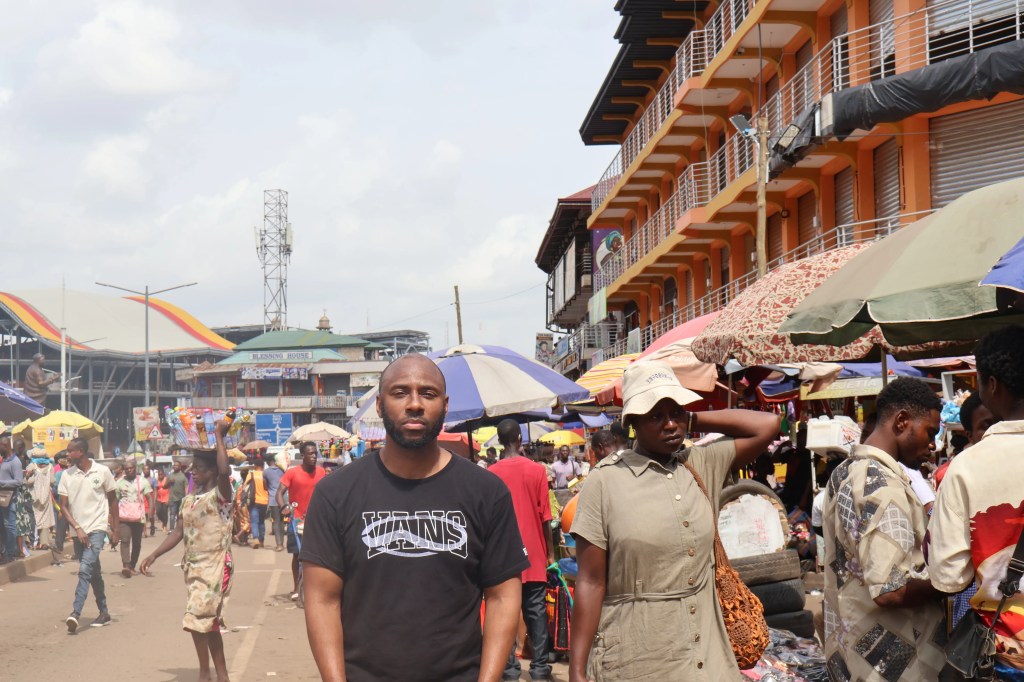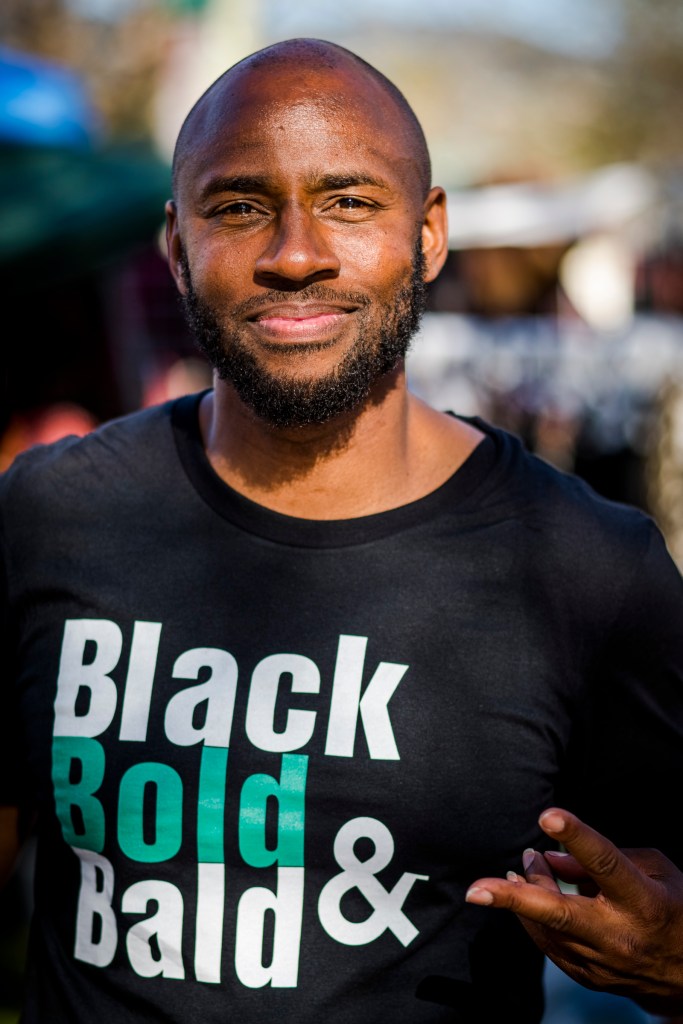
My mother never wanted to come to California. It’s this simple truth that has shaped the way that I look at my state, the way that I look at the history of black people in this country, and the way that I look at the idea of integration. It’s also shaped the way that I look at my mother, and even the way that I look at myself.
Her story starts in Fort Smith, Arkansas–a very white town with a few small but fully self contained colored sections. She was raised by her grandparents. My great grandfather was a barber, a preacher, a porter on the Missouri Pacific Railway, a handyman, and an architect…well an architect in a very southern way. Meaning, when more of his grandchildren began to move in and the house needed to be expanded then he would be the one to build the extra room–by himself. No contractor, no approval from the city, no blueprint, no workers. Just a man that saw that something needed to be built so he built it. He was 6ft tall, prideful, and domineering. My great grandmother, on the other hand, was a domestic worker at the Goldman Hotel in downtown Fort Smith. She was 4 feet 11 inches tall, everloving, and very sweet. Oftentimes too sweet for my great grandfather’s liking.
“I don’t know why you let them people talk to you like that,” he would yell at her after she told him something that happened at work. And she would take his scolding lecture just like she would take the verbal abuse from the white folk at her job. He made her just a little harder while she made him just a little softer and together they provided the perfect environment for my mother, Evelyn, to thrive.
My mother was a phenomenal student and a stellar athlete. She won the physical fitness competition every year in grade school. She played the clarinet in the marching band. She was on the softball team and she was a straight A student. She had four siblings that she shared a home with. The rest of her younger brothers and sisters lived with her mother and stepfather in California. Of all the children though, my mother was the most gifted academically. She would be the first person on both her mother and her father’s side of the family to attend college. My mother had been elected as the student body vice president of Lincoln High School at the end of her sophomore year. Which meant she would serve her term as VP of her junior class and then as a Senior she would automatically be selected as student body president of the entire school.
Her term as president of Lincoln High School would have been the pinnacle of a brilliant k-12 academic career. It also would have been a source of enormous pride for the family. Lincoln High School wasn’t just an institution, but it was the hub of Black Fort Smith. It was the location of bake sales, talent shows, fish fries, community meetings, and football games replete with scintillating halftime performances by the band. To say that your grandbaby, or your sister, or your brother, or your daughter, or your son, or your niece was the President of Lincoln High School was almost like saying you’re related to the mayor. You had clout. It meant that your family was going places. As a grown man I can see how elated my mother must have been when she won that election. Her radiant smile and glowing brown skin must have lit up the school everyday until summer break. Unfortunately, it would be that summer that she would receive the news that would ultimately dim her light and rearrange her entire Universe. The year was 1966 and Governor Orval Faubus had decided that it was time to enforce integration in the state of Arkansas. His strategy in most municipalities was to close down the Black schools and bus the Black students to white schools. This meant that Lincoln High School in Fort Smith would be no more. My mother was to be sent to the previously all white Northside High School. An atmosphere that would be hostile and repressive.
My great grandparents knew that my mother wouldn’t be allowed to participate in the band, she would not have been placed in honors classes, and she most definitely would not be student body president due to her blackness, so they decided to send my mother to San Francisco to stay with her mother, her stepfather, and her younger siblings.

When I asked my mother what went through her mind when she was told that she would be moving to California she responded, “I braced myself to roll with change. I knew that the change would be greater than anything I had ever experienced.” Then I asked her if she cried,” and she said “Nope.”
She didn’t weep. She didn’t become lethargic. She didn’t rebel. She joined the band at Mission High School in San Francisco. She played softball. She was enrolled in honors classes, and was ultimately accepted into UC Berkeley. While at Cal she met a law student from Covington, Tennessee. They fell in love and had three children, the youngest of them being myself. Eventually the family moved to Oakland where my siblings and I were raised.
As a kid we used to beg my mother to tell us stories about her childhood in the South. This normally took place when it was time for us to go to bed and we wanted to stay up just a little longer. More often than not my mother would oblige. Her face would become luminescent as she reached back into her memory into the time in her life before she caught that cheap Continental Trailways bus to San Francisco. Before she was ordered to be integrated into an institution with poor whites who, if they knew nothing else they knew that they were above her. She would conjure up stories from a time when her grandparents who raised her were still alive. When her little brothers and sisters and mother were in town for the summer. When her village was complete. When part of her chores would be to wring a chicken’s neck and she learned the hard way not to befriend any of the livestock because one day your little pet would be on your dinner plate. She would think back to when they would ride pigs and hunt squirrels and they would be fist fighting each other one day and cooking for one another the next. When my oldest Uncle was a star running back at Lincoln High School and at every game my mother would awe at the precision, discipline, and artistry of the marching band. She couldn’t wait until it was her turn to represent that most cherished institution.
As the movie played out in her head she would smile and we would laugh hysterically as we sat Indian style on the dining room floor. I envisioned all of her stories in black and white. As she told them I thought about I Love Lucy and Leave it to Beaver. They seemed to speak to a classic era of love and simplicity. And she spoke with a palpable sense of nostalgia that stood in direct contrast to everything that I was learning about the South in school at the time. My mother had never seen a lynching or a crossburning. She had never been sprayed with a water hose and had never seen a Klan rally. She had never run home crying because a little white girl didn’t want to be her friend. She talked about her little pocket of the South as if it were the safest place in the world. As if it were nurturing and healthy. My mother would lose track of time and we would stay up over 30 minutes past our bedtime listening to her stories. She never wanted to come to California. She never wanted to leave the South. This was always very evident. And that’s why I always questioned the videos of the Black people who exposed themselves to physical violence and abuse in the name of integrating a lunch counter. This is why I couldn’t quite understand how a black parent would willingly send their 6-year-old child into the lion’s den of an all white school without any administrative support or any other child who looked like them to talk to, in the name of progress. We had our own schools and our own restaurants. Our own dreams, our own ambitions, our own bands, our own softball teams, our own scholars, and our own achievements that existed apart from the white establishment. But yet we have been conditioned to celebrate the sacrificing of our business districts and the traumatization of our children in order to live an existence as eternal dependents begging for entry into the house of a man who hates us.
I love the state of California as does my mother. We love the Redwoods, the wine, the hills, and the Pacific Ocean. I would be remiss, however, if I did not say that this love was forced by a political order that was recklessly implemented with a flagrant disregard for the development of black society. My mother never wanted to come to California, and she should have never had to.




